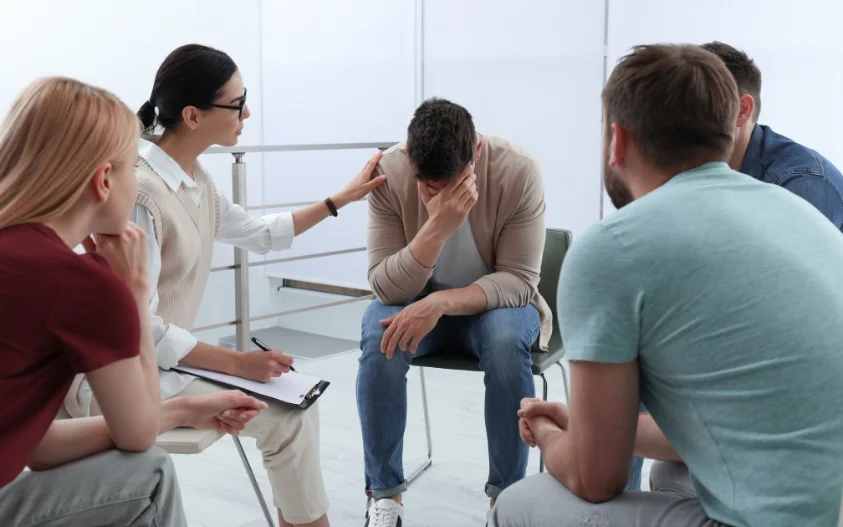24/7 Helpline:
(866) 899-221924/7 Helpline:
(866) 899-2219
Learn more about Cocaine Rehab centers in Morgan County

Other Insurance Options

BlueCross

Holman Group

Amerigroup

EmblemHealth

Optum

UnitedHealth Group

Sutter

Humana

PHCS Network

Optima

Magellan Health

Medical Mutual of Ohio

Sliding scale payment assistance

Evernorth

Molina Healthcare

Health Choice

Absolute Total Care

Kaiser Permanente

Cigna

Magellan

Eastridge Health Systems
Eastridge Health Systems is a private rehab located in Berkeley Springs, West Virginia. Eastridge He...













